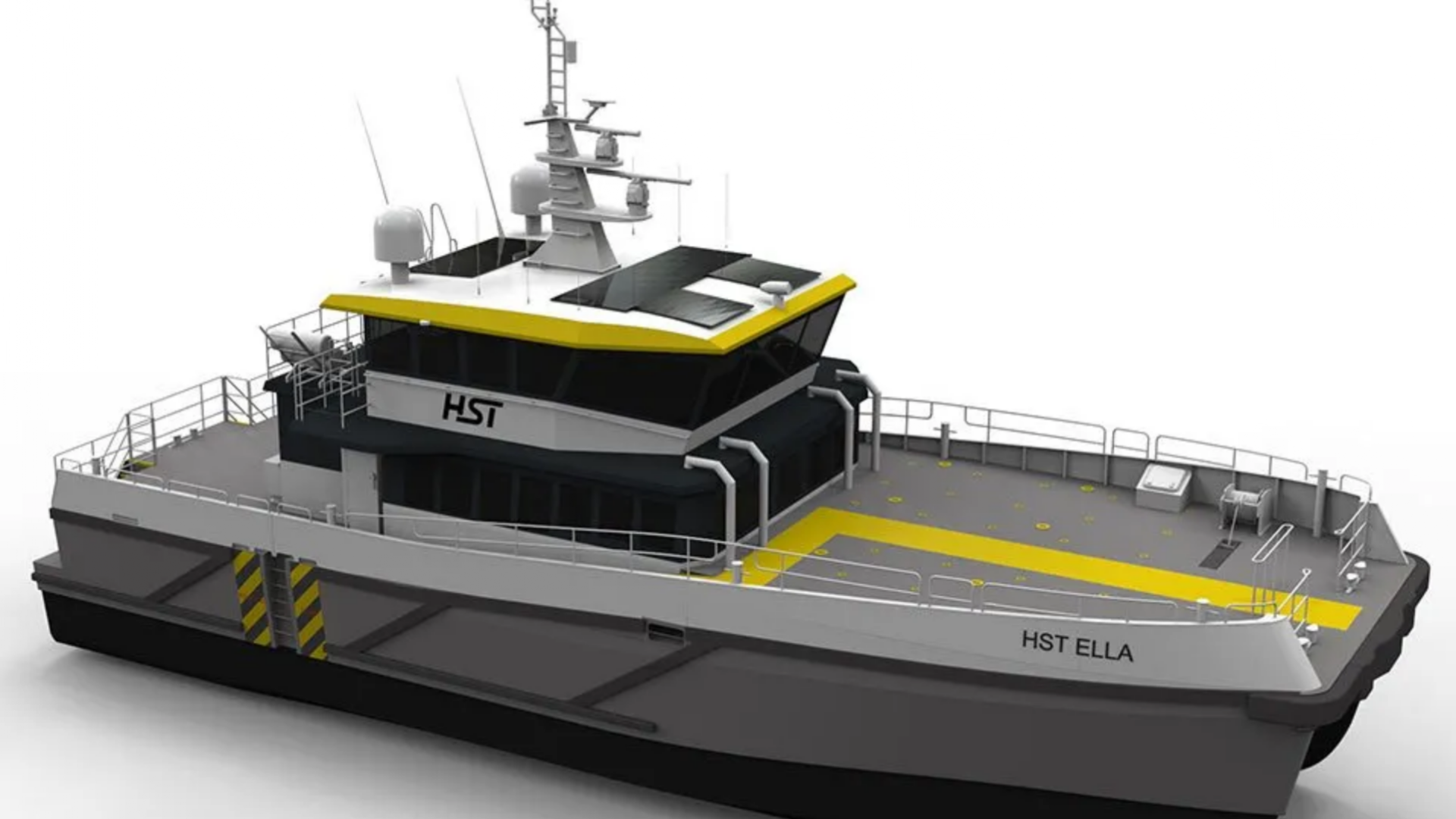
Chartwell and Diverse seal hybrid CTV order from High Speed Transfers
July 1, 2020 | 4years | News
HST will be first offshore wind vessel operator to benefit from operational versatility and efficiency gains offered by the new hybrid Chartwell 24 designH
Southampton, 1st July, 2020 – Chartwell Marine, a pioneer in next-generation vessel design, has signed a contract to design and deliver a new hybrid Chartwell 24 crew transfer vessel (CTV) for High Speed Transfers (HST), an innovative CTV operator that supports the offshore wind energy and oil and gas industries worldwide. The vessel, which will provide dedicated support for the offshore wind sector, is set to be built locally in the UK by Isle of Wight yard Diverse Marine, which was awarded the build contract following a competitive global tender process.
HST’s order marks a milestone in the collaboration between these three British firms, which has seen a number of adaptations made to the proven Chartwell 24 design to meet the demands of hybrid operation.
The international expansion of the offshore wind sector is creating significant opportunities for the maritime supply chain, and simultaneously driving substantial innovation in vessel design as operators respond to new and emerging legislative requirements. Reducing vessel emissions and fuel consumption is a key target for the industry to ensure compliance with air quality legislation and reduce the overall carbon footprint of building and operating offshore wind farms.
Andy Page, Managing Director, Chartwell Marine, said: “We are excited to be working with HST and Diverse Marine to bring this innovative hybrid CTV to market, maintaining the collaborative approach that has fed into the evolution of the Chartwell 24 design to date. As the drive towards greener operations gains momentum, it is important that we tackle the emissions challenge head on, without losing sight of the key attributes that define effective offshore wind vessel support.”
The new hybrid Chartwell 24 design is the product of extensive R&D and ongoing dialogue with HST and Diverse Marine, alongside wind farm owners and the wider offshore supply chain. It capitalises on these insights to address some of the most common operational and design challenges surrounding effective hybrid propulsion.
The catamaran’s unique hybrid propulsion system incorporates an electric motor alongside a diesel engine, which drive a high-performance changeable pitch propeller (CPP) system. At low speeds, this allows for silent, zero emissions operation, enabling the vessel to comply with port air quality requirements. At transit speeds, it is able to perform capably and efficiently while ensuring the comfort of technicians. Its advanced hull form, high bollard push and superior bow height ensures confident transfers at high wave heights.
This new hybrid propulsion configuration complements existing design innovations that set the Chartwell 24 apart in the market. These include enhanced foredeck capacity and wheelhouse visibility, which enable skippers, crews and technicians to safely navigate challenging logistical assignments. For HST, the vessel will support an ongoing commitment to the highest standards of service for offshore wind firms, while adding new levels of efficiency, versatility and flexibility.
Tom Nevin, Chief Executive Officer, HST, said: “As our partnerships grow throughout new markets, we need to continue investing in our fleet in order to address unique demands, opportunities and emerging requirements. With the addition of this highly capable hybrid vessel, we’re confident that we can continue supporting technical innovation in important areas like emissions reduction, while adding significant value for our customers.”
Ben Colman, Director, Diverse Marine, added: “The maritime supply chain in the UK continues to demonstrate its leading role bringing through the innovations that will define the way vessels are built and operated worldwide. It’s important that the economic opportunities inherent in commercialising and exporting these next-generation technologies are recognised as the UK and Europe look towards a ‘green recovery’.
